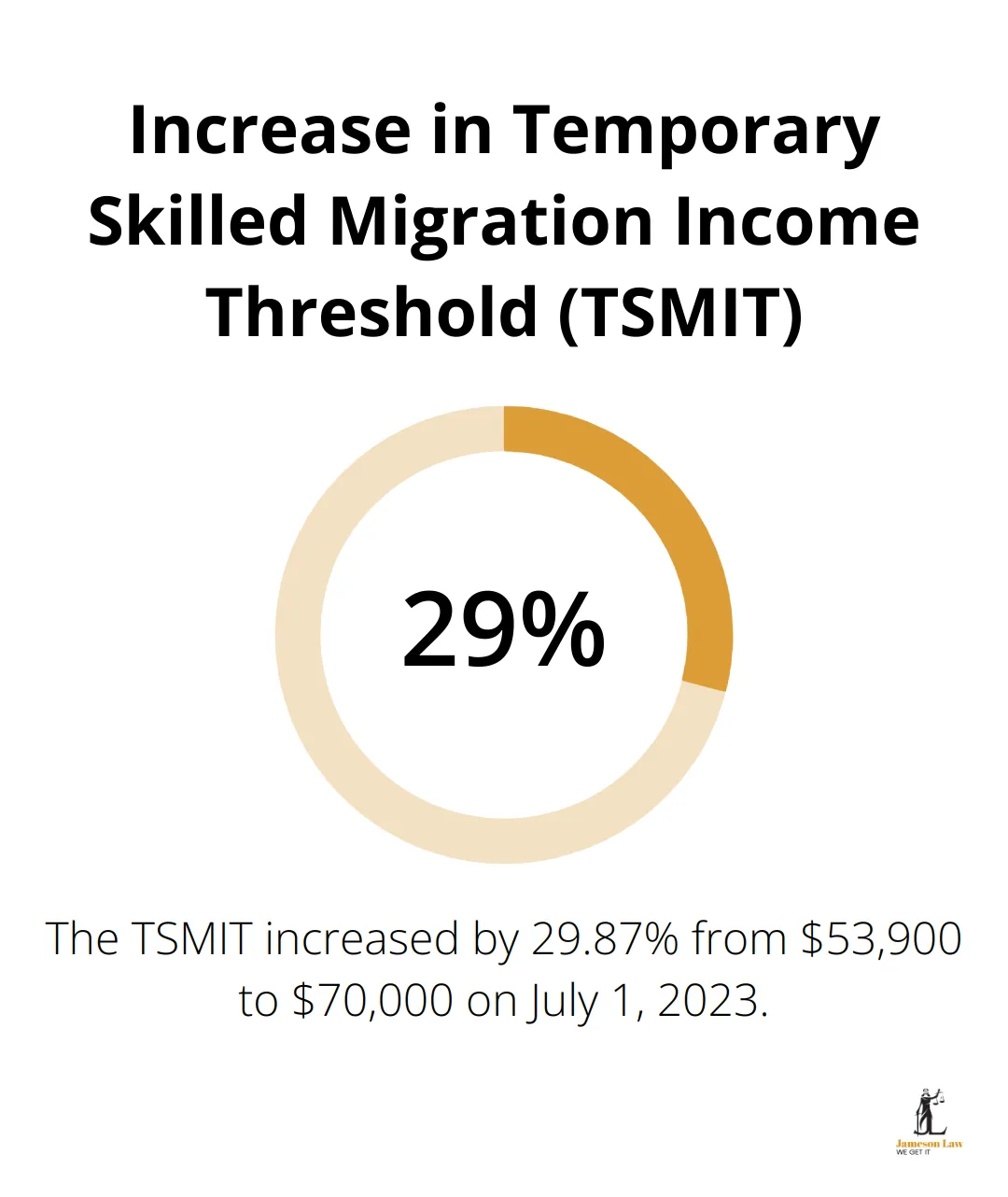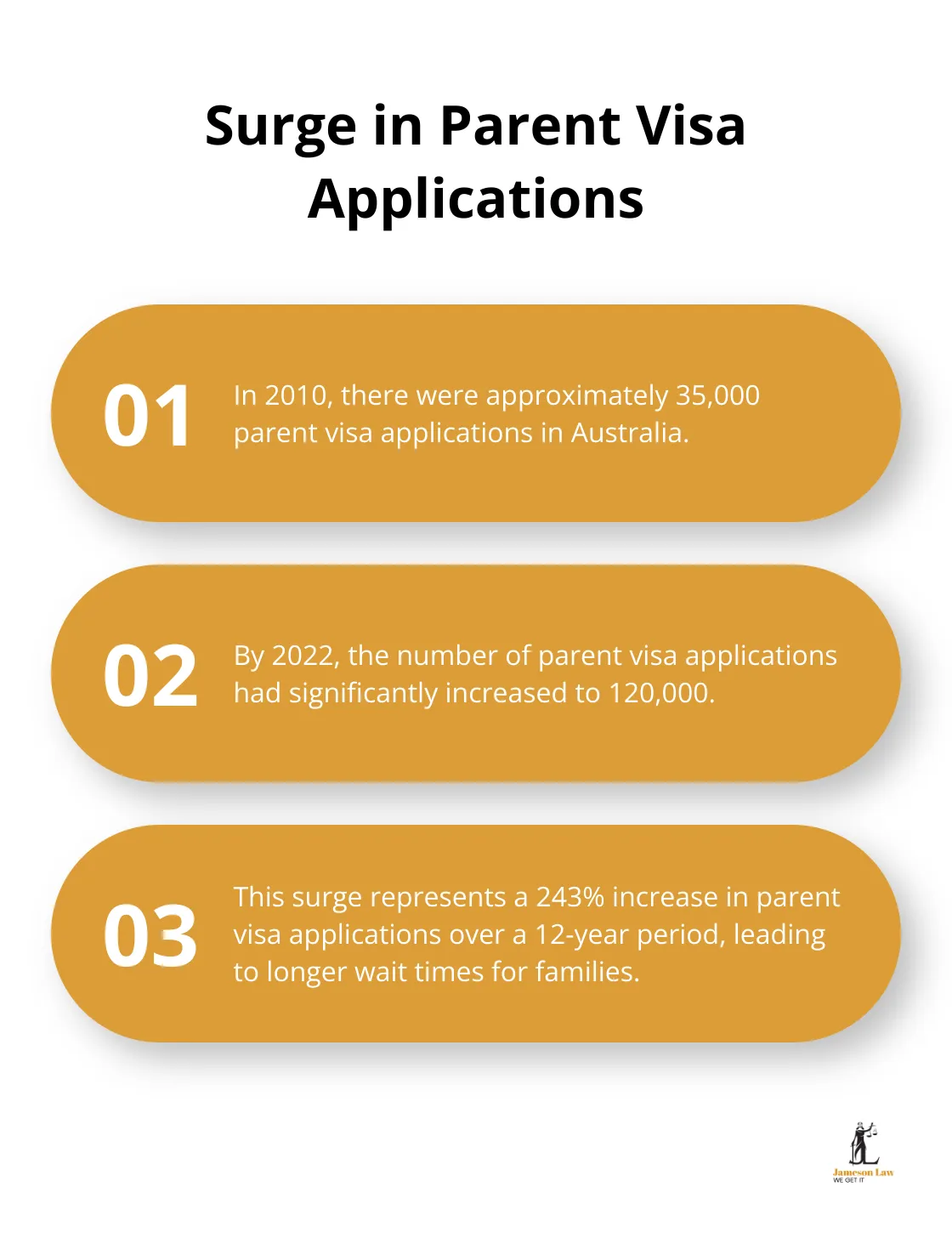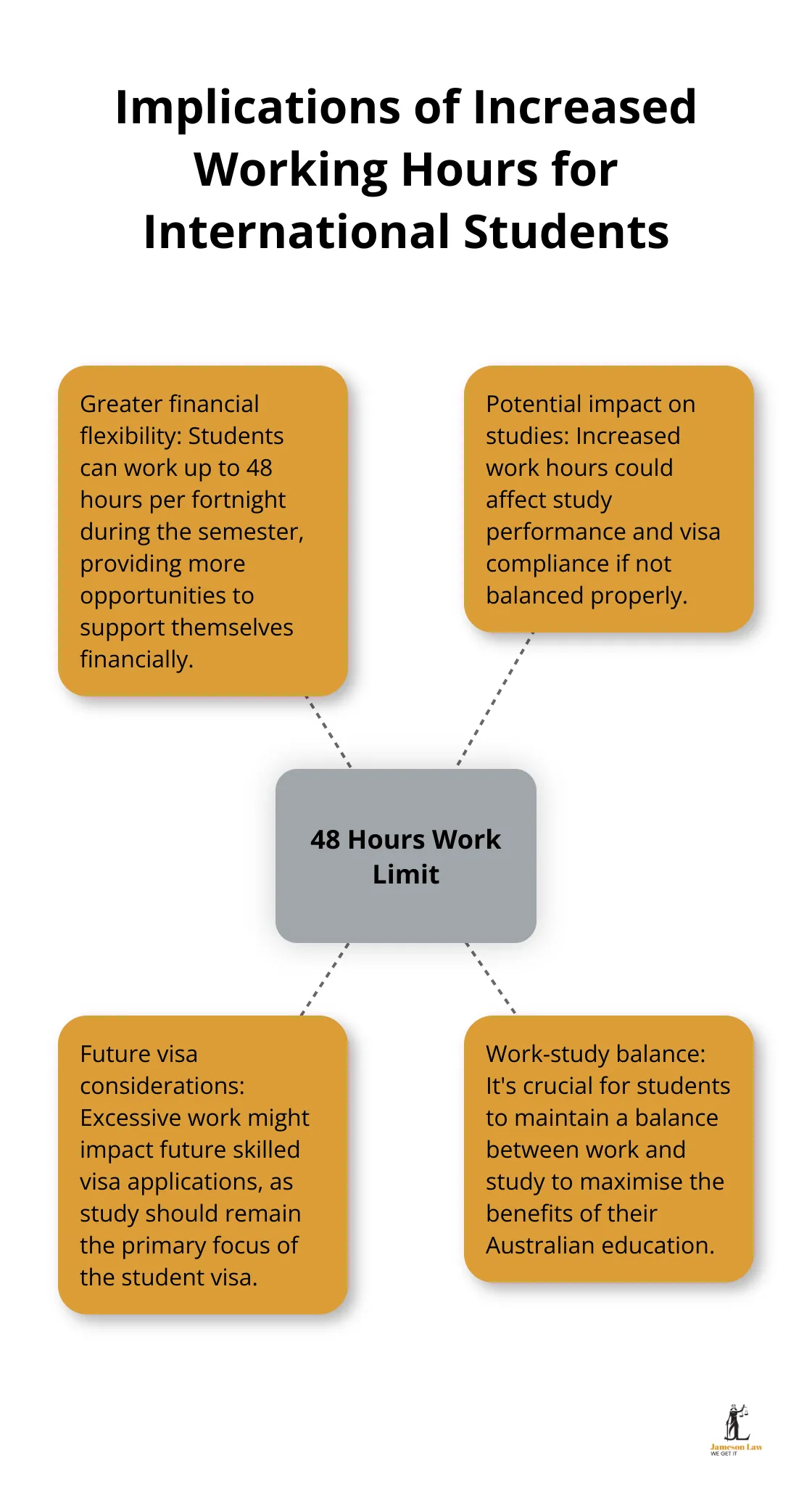Australian immigration policies are constantly evolving, and 2023 has brought significant changes. At Jameson Law, we’ve observed several key updates that affect various visa categories and applicants.
This blog post explores the latest changes in Australian immigration 2023, covering modifications to skilled migration, family visas, and student visa programs. We’ll also discuss how these updates impact different visa holders and applicants, providing essential information for those navigating the Australian immigration system.
What’s New in Australian Immigration for 2023?
Australia’s immigration landscape has transformed significantly in 2023. The government has introduced several key updates that will affect various visa categories and applicants. Let’s explore the most important changes to skilled migration, family visas, and student visa programs.
Skilled Migration Program Overhaul
The Australian government has implemented major changes to the skilled migration program. The Temporary Skilled Migration Income Threshold (TSMIT) increased from $53,900 to $70,000 on July 1, 2023. This substantial rise ensures that skilled migrants receive fair wages that reflect current market conditions.
Employers sponsoring workers on subclass 482 visas must now demonstrate that they pay at least $70,000 for the nominated role, in line with Australian Market Salary Rates (AMSR). This change will impact some industries more than others, particularly those with traditionally lower wages.

Family Visa Streamlining
Family visa applications have seen positive changes. New Zealand citizens living in Australia now have a direct pathway to Australian citizenship (effective from July 1, 2023). This streamlined process no longer requires a minimum period of residence in Australia, and the income threshold has been removed.
The government has also proposed parent visa lotteries to address the significant backlog of applications. The number of parent visa applications surged from about 35,000 in 2010 to 120,000 by 2022, creating long wait times for families. This new system aims to make the process fairer and more efficient.

Student Visa Flexibility
International students have received both benefits and restrictions in recent visa adjustments. As of July 2023, students on a subclass 500 visa can work up to 48 hours per fortnight during the semester. This change provides more flexibility for students to support themselves financially while studying.
However, this increased work capacity could potentially impact future eligibility for skilled or employer-sponsored visas. Students should carefully consider how much they work during their studies to maintain a balance that doesn’t compromise their primary purpose of being in Australia – education.
Impact on Visa Processing Times
The recent changes have also affected visa processing times. The Department of Home Affairs has reported improvements in processing times for some visa categories, while others may experience delays due to the implementation of new policies.
For example, partner visa processing times have seen a reduction, with 90% of applications now processed within 12 months. However, skilled visa processing times may temporarily increase as the department adjusts to the new TSMIT requirements.
These changes reflect Australia’s ongoing efforts to attract and retain skilled workers while managing immigration levels. As we move forward, it’s essential to understand how these updates may affect different visa categories and applicants.
How Are Visa Categories Changing?
The recent updates to Australian immigration policies have significantly impacted various visa categories. These changes affect processing times, eligibility criteria, and overall application procedures for different visa types.
Temporary Skill Shortage (TSS) Visa Overhaul
The Temporary Skill Shortage (TSS) visa (subclass 482) has undergone substantial changes. The most notable update is the increase in the Temporary Skilled Migration Income Threshold (TSMIT) from $53,900 to $70,000. This change directly affects both employers and visa applicants.
Employers must now demonstrate that they pay at least $70,000 for the nominated role, in line with Australian Market Salary Rates. This higher threshold aims to ensure fair wages for skilled migrants but may pose challenges for industries with traditionally lower salaries.
For TSS visa applicants, this change means potentially higher earning potential but also increased competition. Some roles that previously qualified for the TSS visa may no longer meet the new salary threshold, potentially limiting options for some skilled workers.
Partner Visa Processing Improvements
Partner visa applications have seen positive developments in processing times. The Department of Home Affairs now processes 90% of partner visa subclass 100 applications within 20 months, which is an improvement from previous years.
This faster processing is good news for couples waiting to reunite or start their lives together in Australia. However, individual processing times can still vary based on the complexity of each case and the completeness of the application.
To take advantage of these improved processing times, applicants should submit thorough applications with all required documents. Professional legal advice can help streamline this process and potentially reduce delays.
Working Holiday Visa Extensions
Working Holiday visas have also changed to address labour shortages in certain sectors. The Australian government has extended the eligibility age for Working Holiday Maker visas to 35 years for several partner countries, opening up opportunities for a broader range of applicants.
Additionally, Working Holiday Makers in specific industries (such as agriculture and hospitality) may qualify for extended stays. These extensions support sectors facing labour shortages while providing more opportunities for cultural exchange.
However, Working Holiday visa holders must understand the specific conditions attached to these extensions. Some may require work in designated regional areas or particular industries. Knowledge of these requirements is essential to maintain visa compliance and maximise the benefits of these extensions.

These changes across different visa categories reflect Australia’s evolving approach to immigration, balancing economic needs with fair work practices and cultural exchange opportunities. As these policies continue to develop, professional guidance can help navigate the complexities of the Australian immigration system effectively. The next section will explore how these changes specifically affect visa applicants and what new requirements they need to meet.
How These Changes Affect Visa Applicants
The recent updates to Australian immigration policies have significant implications for visa applicants. These changes affect eligibility criteria, processing times, and overall application procedures across various visa categories.
New Requirements for Skilled Migrants
For skilled migrants, the increase in the Temporary Skilled Migration Income Threshold (TSMIT) to $73,150 changes the game. This higher threshold means that some occupations may no longer qualify for skilled visas, particularly in industries with traditionally lower wages. Applicants must now ensure their nominated roles meet this new salary requirement.
To navigate this change, skilled visa applicants should:
- Research current salary trends in their industry to ensure they meet the new threshold.
- Consider upskilling or gaining additional qualifications to qualify for higher-paying roles.
- Explore alternative visa options if their current occupation no longer meets the TSMIT.
Increased Opportunities for International Students
International students now have more opportunities to work while studying in Australia. The increase in allowed working hours to 48 hours per fortnight during the semester provides greater financial flexibility. However, this change comes with potential pitfalls.
Students should know that:
- More working hours could impact their study performance and visa compliance.
- Excessive work might affect future skilled visa applications (study should remain the primary focus).
- It’s important to maintain a balance between work and study to maximise the benefits of their Australian education.
Changes in Processing Times and Fees
Visa processing times and fees have seen varied changes across different categories. While some visa types, like partner visas, have experienced improved processing times, others may face delays due to policy adjustments.
Applicants should keep in mind:
- Partner visa processing times usually range between 15 and 28 months.
- Skilled visa processing times may temporarily increase as the department adjusts to new TSMIT requirements.
- Fees for some visa categories have increased, reflecting the cost of implementing new policies.
To navigate these changes effectively, applicants should start their visa process well in advance of their intended travel or work start date. Staying informed about the latest updates and seeking professional advice can help avoid potential delays or complications in the application process.
Final Thoughts
The latest changes in Australian immigration 2023 have transformed policies for skilled migrants, families, and international students. The Temporary Skilled Migration Income Threshold increase to $70,000 has raised standards for skilled visa applicants, affecting various industries. Family visa processes have improved, with streamlined pathways for New Zealand citizens and proposed solutions for parent visa backlogs. International students now enjoy more work hour flexibility, but must balance this with their primary educational goals.
Australia’s immigration system adapts continuously to economic needs and societal changes. As visa categories evolve and new requirements emerge, applicants must stay informed to navigate the process effectively. Regular updates from official sources and professional guidance can help applicants understand how these changes affect their specific situations.
At Jameson Law, we assist clients in understanding new requirements and preparing strong applications. Our team of experienced immigration lawyers provides up-to-date advice and support (based on the latest policy changes). We can help skilled workers, family members seeking reunification, and international students plan their future in Australia.













